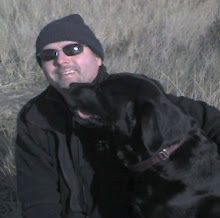As we've all watched the studios tighten their belts; and the television prodco's around town bury their heads further in the sand,
Peter Bart over at Variety had a noteworthy column about 2 weeks ago on the bean-counters taking over.
Mr. Bart, as one of the few people left in our business who has been through a recession before, as a studio exec, has some unique insights;
I was an executive at Paramount Pictures when times suddenly took a turn for the worse and my company decided to do the unthinkable: The corporate mandate was that Paramount was to become "lean and mean." That was all right with me in theory, since I already was lean and my initial experience at the studio was making me mean.
But then came the specifics. The studio's entire production team would be moving off the Paramount lot to a new headquarters in a suite of offices on Canon Drive in Beverly Hills.
The "new Paramount" would continue to advance its agenda of films -- as many as 15 a year -- but budgets would be tighter and deals leaner. And the delicious little "fringe benefits" of studio life would be no more. When a star in a Paramount movie arrived at LAX, no limo would meet him. Unless he paid for it himself.
And here was the surprise ending: Upon leaving the lot, the quality of our movies promptly improved markedly, and so did the box office results. Instead of the over-budget turkeys that Paramount had been making ("The Molly Maguires," "Catch-22"), the studio suddenly was turning out "Rosemary's Baby," "Love Story," "The Godfather," "Paper Moon" and "The Longest Yard." Even the losers were intriguing -- witness "Harold and Maude."
I personally find the history in context very hopeful. Our industry desperately needs thinning out; perhaps I'll be "thinned out" too; perhaps not. Hopefully I'm good enough at what I do that I'll get to stick around and help be an agent of change.
But more than just a re-alignment (cosmic change, as Mr. Bart puts it); tighter budgets means fewer people involved in the creative process, because there isn't enough money to pay them all. Fewer people involved in the creative process means that projects can move faster, lighter, and most of all, the creative juices stand less chance of being watered down.
It means that leaner times can give rise to better films, and better stories.
Perhaps even give rise to braver voices who aren't scrapping over who has the bigger trailer on the set, or the biggest hotel room on location; whose primary focus and vision is that of creating great story.
Because that star (or EP, or Director) who can't do that, will be left waiting at the airport for a limosine that's not coming.
Personally, I look forward to great storytelling coming from this next decade.
Labels: digital storytelling, Peter Bart, studio history, Variety



